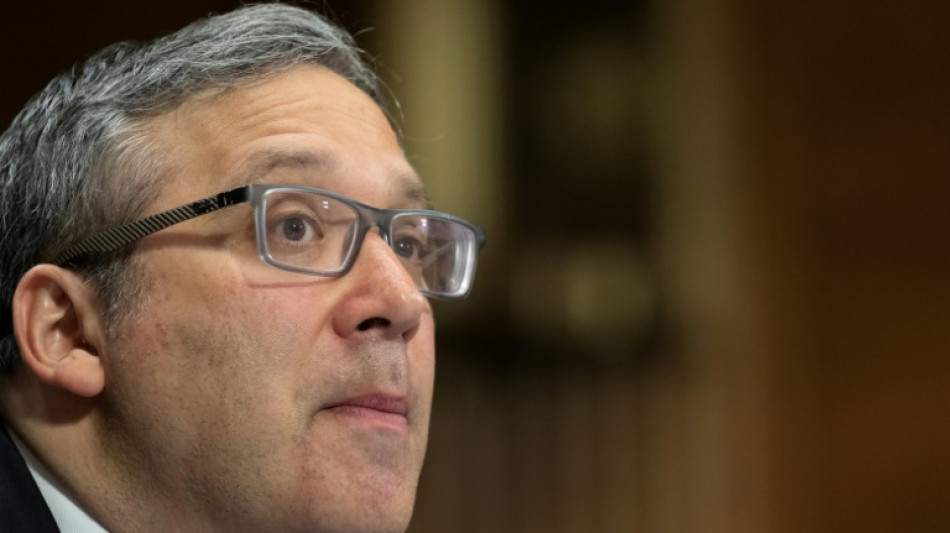
-
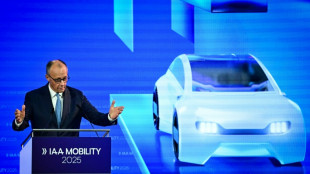 Merz ramps up pressure on EU over electric car shift
Merz ramps up pressure on EU over electric car shift
-
Athletics chief Coe admits 'heat challenges' at Tokyo worlds

-
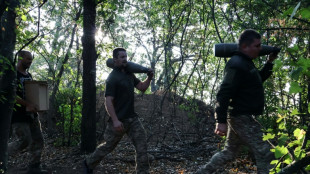 At least 20 killed in Russian strike on east Ukraine: Zelensky
At least 20 killed in Russian strike on east Ukraine: Zelensky
-
'World watches our slaughter': Gazans flee Israeli assault on urban hub

-
 'Da Vinci Code' author Dan Brown releases latest thriller
'Da Vinci Code' author Dan Brown releases latest thriller
-
Nepal PM resigns after deadly protests sparked by social media ban

-
 Kony crimes still felt in Uganda, 20 years on, ICC hears
Kony crimes still felt in Uganda, 20 years on, ICC hears
-
Nottingham Forest swoop for Postecoglou after sacking Nuno

-
 Australia beat New Zealand again to win 'Soccer Ashes'
Australia beat New Zealand again to win 'Soccer Ashes'
-
Hundreds of pro-Palestinian demonstrators rally outside London arms show

-
 Nepal prime minister resigns after deadly protests
Nepal prime minister resigns after deadly protests
-
Japan ruling party to pick new leader on October 4
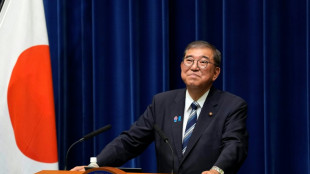
-
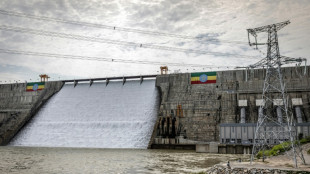 Ethiopia inaugurates Africa's biggest dam
Ethiopia inaugurates Africa's biggest dam
-
Miners Anglo American, Teck plan new copper giant

-
 Suriname stun El Salvador, allege racist chants in WC qualifying
Suriname stun El Salvador, allege racist chants in WC qualifying
-
Macron scrambles to find new French PM as Bayrou set to resign
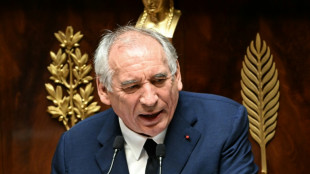
-
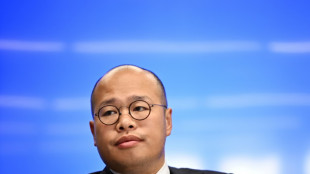 Death of Hong Kong's Lai would strengthen democracy message, son says
Death of Hong Kong's Lai would strengthen democracy message, son says
-
Korean women target US military in landmark forced prostitution lawsuit

-
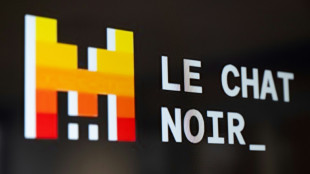 Mistral cements AI lead in Europe with cash infusion
Mistral cements AI lead in Europe with cash infusion
-
Israel says to act with 'great force' in Gaza City

-
 South Korean women sue US military in landmark prostitution lawsuit
South Korean women sue US military in landmark prostitution lawsuit
-
40 years of 'Mario' games that have grown up with fans

-
 AI and iPhones likely stars of Apple event
AI and iPhones likely stars of Apple event
-
Thaksin termination? Prison term latest chapter in political odyssey
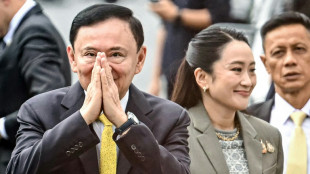
-
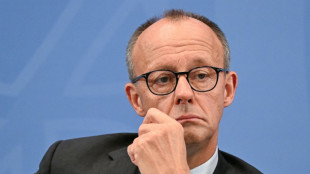 Merz to open Munich motor show as engine row threatens to combust
Merz to open Munich motor show as engine row threatens to combust
-
Quiet Tebogo's legs to 'do the talking' in Lyles 200m worlds battle

-
 Gaza aid flotilla says hit by drone, Tunisia says none detected
Gaza aid flotilla says hit by drone, Tunisia says none detected
-
Thai top court orders ex-PM Thaksin jailed for one year
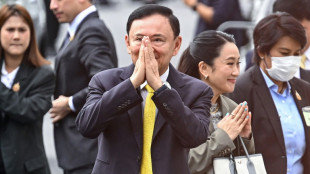
-
 All Blacks great McCaw inspires squad ahead of Springboks rematch
All Blacks great McCaw inspires squad ahead of Springboks rematch
-
Maduro decrees Christmas in October for Venezuela, again

-
 New Zealand police detail slain fugitive father's life on the run
New Zealand police detail slain fugitive father's life on the run
-
McCarthy sparks late rally as Vikings edge Bears in NFL opener

-
 Suriname stuns El Salvador in 2026 World Cup qualifying
Suriname stuns El Salvador in 2026 World Cup qualifying
-
London arms show opens under Israel cloud

-
 ICC hears charges against Ugandan warlord Kony
ICC hears charges against Ugandan warlord Kony
-
Most Asian markets rise on US rate hopes, Tokyo hits record

-
 Nottingham Forest sack head coach Nuno after rift with owner
Nottingham Forest sack head coach Nuno after rift with owner
-
Major social media sites back online in Nepal after deadly protests
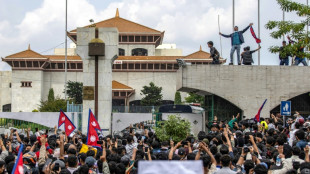
-
 From rocky start to Oscar hopeful: Dwayne Johnson hits Toronto
From rocky start to Oscar hopeful: Dwayne Johnson hits Toronto
-
Murdoch family settles dispute over media empire succession

-
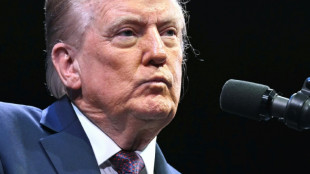 Trump's alleged birthday note to Epstein released by House panel
Trump's alleged birthday note to Epstein released by House panel
-
Killing Hong Kong's Lai would strengthen democracy message, son says
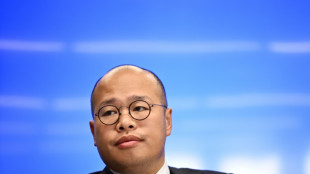
-
 D-Day approaches in Bolsonaro coup trial
D-Day approaches in Bolsonaro coup trial
-
Israel film at Toronto fest entrenches industry split over Gaza

-
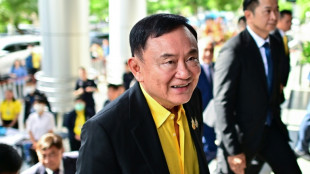 Thai top court to rule on ex-PM Thaksin's prison stay
Thai top court to rule on ex-PM Thaksin's prison stay
-
North Korea's Kim oversees ICBM engine test: state media

-
 Nottingham Forest sack boss Nuno Espirito Santo
Nottingham Forest sack boss Nuno Espirito Santo
-
Elevating Imaging, Empowering Flow - AGFA HealthCare at RSNA 2025

-
 Trump admin launches immigration raids in Chicago
Trump admin launches immigration raids in Chicago
-
Murdoch family settles dispute on control of media assets


Human extinction threat 'overblown' says AI sage Marcus
Ever since the poem churning ChatGPT burst on the scene six months ago, expert Gary Marcus has voiced caution against artificial intelligence's ultra-fast development and adoption.
But against AI's apocalyptic doomsayers, the New York University emeritus professor told AFP in a recent interview that the technology's existential threats may currently be "overblown."
"I'm not personally that concerned about extinction risk, at least for now, because the scenarios are not that concrete," said Marcus in San Francisco.
"A more general problem that I am worried about... is that we're building AI systems that we don't have very good control over and I think that poses a lot of risks, (but) maybe not literally existential."
Long before the advent of ChatGPT, Marcus designed his first AI program in high school -- software to translate Latin into English -- and after years of studying child psychology, he founded Geometric Intelligence, a machine learning company later acquired by Uber.
- 'Why AI?' -
In March, alarmed that ChatGPT creator OpenAI was releasing its latest and more powerful AI model with Microsoft, Marcus signed an open letter with more than 1,000 people including Elon Musk calling for a global pause in AI development.
But last week he did not sign the more succinct statement by business leaders and specialists -- including OpenAI boss Sam Altman -- that caused a stir.
Global leaders should be working to reduce "the risk of extinction" from artificial intelligence technology, the signatories insisted.
The one-line statement said tackling the risks from AI should be "a global priority alongside other societal-scale risks such as pandemics and nuclear war".
Signatories included those who are building systems with a view to achieving "general" AI, a technology that would hold the cognitive abilities on par with those of humans.
"If you really think there's existential risk, why are you working on this at all? That's a pretty fair question to ask," Marcus said.
Instead of putting the focus on more far-fetched scenarios where no one survives, society should be putting attention on where real dangers lie, Marcus surmised.
"People might try to manipulate the markets by using AI to cause all kinds of mayhem and then we might, for example, blame the Russians and say, 'look what they've done to our country' when the Russians actually weren't involved," he continued.
"You (could) have this escalation that winds up in nuclear war or something like that. So I think there are scenarios where it was pretty serious. Extinction? I don't know."
- Threat to democracy -
In the short term, the psychology expert is worried about democracy.
Generative AI software produces increasingly convincing fake photographs, and soon videos, at little cost.
As a result, "elections are going to be won by people who are better at spreading disinformation, and those people may change the rules and make it really difficult to have democracy proceed."
Moreover, "democracy is premised on having reasonable information and making good decisions. If nobody knows what to believe, then how do you even proceed with democracy?"
The author of the book "Rebooting AI" however doesn't think we should abandon hope, still seeing "a lot of upside."
There's definitely a chance AI not yet invented can "help with science, with medicine, with elder care," Marcus said.
"But in the short term, I feel like we're just not ready. There's going to be some harm along the way and we really need to up our game, we have to figure out serious regulation," he said.
At a US Senate hearing in May, seated beside OpenAI's Altman, Marcus argued for the creation of a national or international agency responsible for AI governance.
The idea is also backed by Altman, who has just returned from a European tour where he urged political leaders to find the "right balance" between safety and innovation.
But beware of leaving the power to corporations, warned Marcus.
"The last several months have been a real reminder that the big companies calling the shots here are not necessarily interested in the rest of us," he warned.
L.Janezki--BTB

